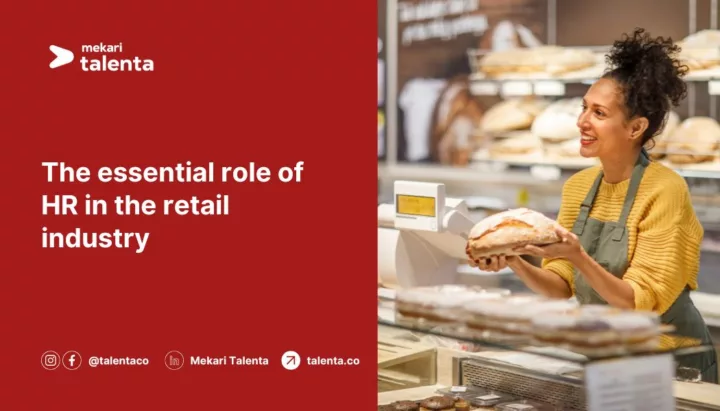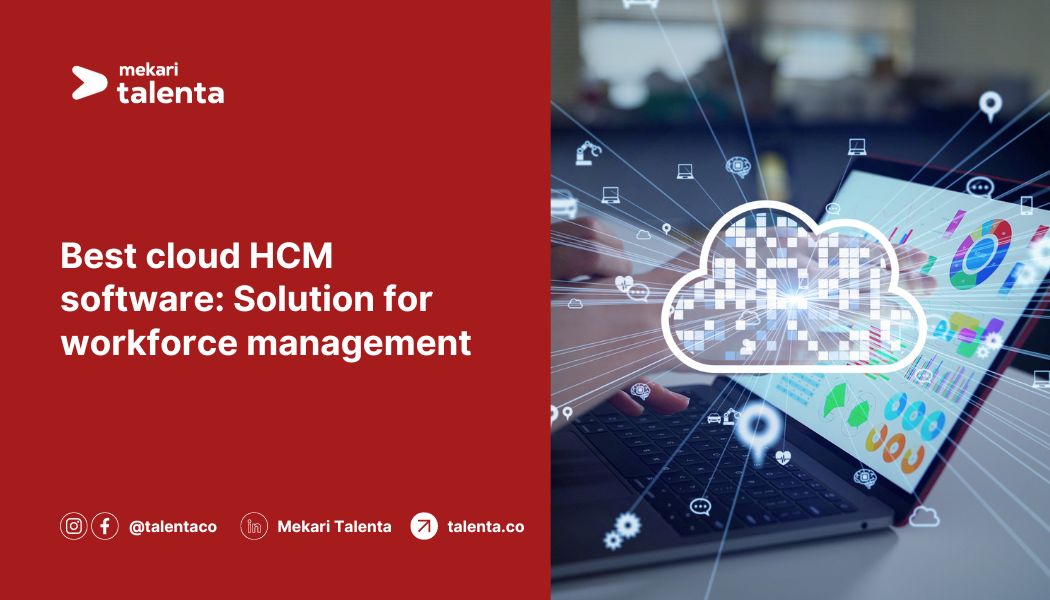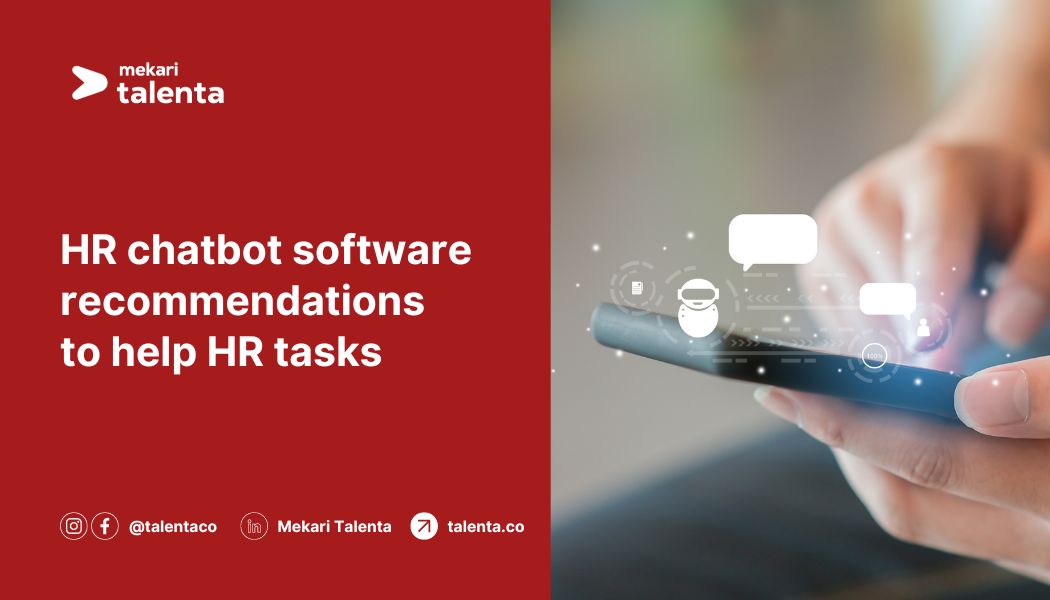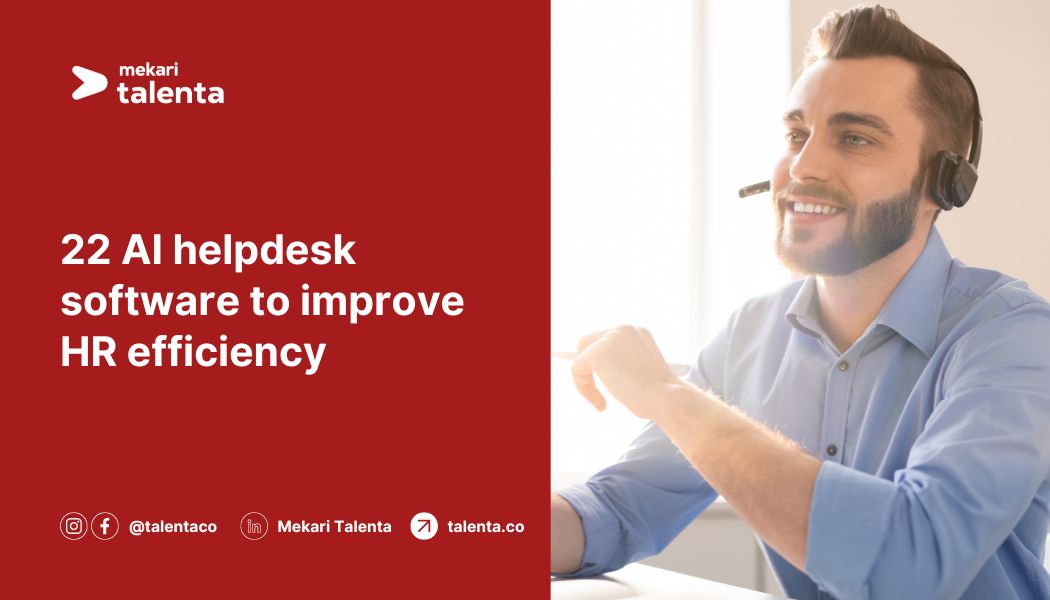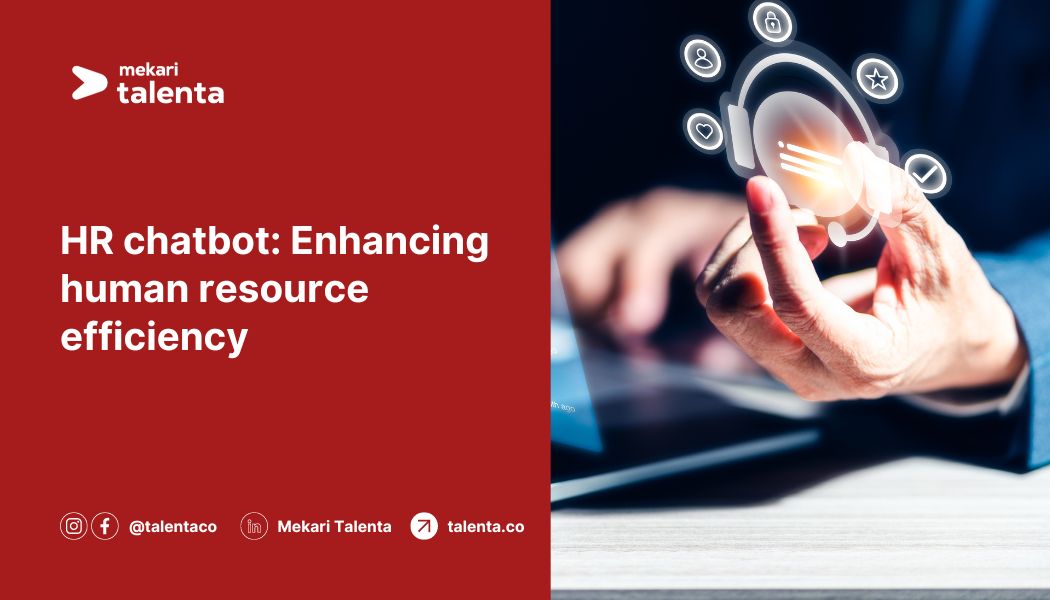The role of HR in the retail industry has its own challenges. HR workers have to be flexible because oftentimes, there are many problems related to resource management that need to be handled carefully.
Since the retail industry is constantly changing and evolving, therefore productivity and the use of technology is essential for success.
So, the role of HR here can support business operations, ensures compliance, and enhances employee performance.
Why HR Is Important in the Retail Industry
Human Resources (HR) is crucial in the retail industry for several reasons. Retail businesses face unique challenges, such as high employee turnover, varying customer demand, and the need for a customer-focused workforce.
It is vital in the retail industry because it helps manage the workforce effectively, ensures high levels of employee engagement and performance, and aligns human resources with the strategic goals of the company. By addressing the unique challenges of retail, HR helps create a productive, customer-focused, and adaptable organization.
Responsibilities of HR in Retail
Here are the key responsibilities of HR in the retail industry, focusing on how they address the unique needs and challenges of this sector. These responsibilities are crucial for maintaining high levels of customer service, reducing turnover, and ensuring the overall success of the business.
1. Hiring and Onboarding
In the retail industry, the workforce often fluctuates due to seasonal demands, sales events, and turnover. This creates a need for an efficient hiring process that can quickly attract, screen, and hire suitable candidates. Retail HR must implement streamlined recruitment practices to handle large volumes of applicants swiftly and effectively.
Once hired, onboarding is crucial to ensure that new employees are quickly brought up to speed. A well-structured onboarding process helps new hires understand their roles, the company culture, and the expectations. This can lead to faster productivity and a smoother transition into the workplace, which is essential in the fast-paced retail environment.
2. Effective Scheduling
Retail HR is responsible for creating schedules that align employee availability with store needs. This is particularly challenging during peak periods, such as holiday seasons, sales, or special events, when customer traffic increases significantly. Effective scheduling ensures that there are enough employees to handle the workload, maintain customer service standards, and manage inventory efficiently.
Then, HR must ensure that all scheduling complies with labor laws and regulations, such as maximum working hours, overtime pay, and rest periods. This involves balancing the needs of the business with legal requirements and employee rights, avoiding potential legal issues and ensuring fair treatment of employees.
3. Employee Relations
Fostering positive employee relations is key to reducing turnover, which is a common challenge in retail due to the often high-stress environment and low entry-level wages. HR plays a critical role in managing employee relations by addressing grievances, promoting open communication, and resolving conflicts.
By building a supportive and inclusive workplace culture, HR helps to boost employee morale, job satisfaction, and engagement. This can lead to improved customer service, as happy and engaged employees are more likely to provide better customer interactions and represent the brand positively.
4. Policies and Compliance
HR is responsible for ensuring that the company adheres to all relevant labor laws, including those related to wages, working hours, health and safety, discrimination, and harassment. Non-compliance can lead to legal issues, fines, and damage to the company’s reputation.
HR develops and enforces internal policies that guide employee behavior, outline expectations, and establish procedures for various situations (e.g., attendance, dress code, conduct). These policies help maintain order, ensure consistency, and protect both the employees and the company.
5. Compensation and Benefits
Offering competitive wages is crucial in the retail industry, where employees can easily move between employers. HR must design compensation packages that are attractive enough to retain skilled workers and reduce turnover. This might include not only base pay but also incentives, bonuses, and performance-based rewards.
In addition to salary, benefits such as health insurance, retirement plans, paid time off, and employee discounts can make a significant difference in attracting and retaining talent. HR needs to develop benefits packages that meet the needs of employees while being cost-effective for the company.
6. Training
Training is essential in retail to ensure that employees have the necessary skills to perform their jobs effectively. This includes training on customer service, product knowledge, sales techniques, and store operations. Well-trained employees can provide better customer service, which directly impacts customer satisfaction and sales.
Retail HR should also focus on continuous learning and development opportunities to help employees advance their skills and careers. This not only improves employee performance but also increases job satisfaction and loyalty. By investing in employee development, retail businesses can create a more skilled and knowledgeable workforce, which is critical for long-term success.
Read more: Best HR Chatbot Software: Top Tools for Human Resources
Challenges of HR in the Retail Industry
The retail industry presents unique HR challenges due to its dynamic environment, high turnover rates, seasonal employment needs, and strict compliance requirements. Effectively addressing these challenges is crucial for maintaining a stable workforce, ensuring compliance, and achieving business success.
Below are common HR challenges in retail and strategies for overcoming them:
Common HR Challenges in Retail
Managing a High-Turnover Workforce
Retail often experiences high turnover rates due to factors like low wages, limited career advancement opportunities, and the transient nature of many retail jobs. High turnover disrupts operations, increases hiring and training costs, and can negatively impact customer service.
Strategies to Overcome
- Improving Employee Engagement: Creating a positive work environment, recognizing and rewarding performance, and providing opportunities for career growth can improve job satisfaction and reduce turnover.
- Competitive Compensation and Benefits: Offering competitive wages, benefits, and incentives can attract and retain employees. Even non-monetary benefits like flexible scheduling and employee discounts can make a significant difference.
- Career Development Opportunities: Providing training and clear career pathways can motivate employees to stay with the company longer, as they see opportunities for advancement.
Dealing with Seasonal Employment
Retailers often need to hire temporary workers during peak seasons (e.g., holidays) to manage increased customer demand. This requires quick hiring, training, and integration of seasonal employees, which can strain resources.
Strategies to Overcome:
- Proactive Workforce Planning: Start recruiting seasonal workers early and use data from previous years to anticipate staffing needs accurately. This helps ensure adequate staffing levels without overhiring.
- Streamlined Onboarding and Training: Develop efficient onboarding processes and offer quick, focused training programs to get seasonal workers up to speed quickly. Use training materials that can be easily understood and applied in a short time.
- Building a Pool of Reliable Seasonal Workers: Establish relationships with reliable temporary staffing agencies or maintain a database of previous seasonal employees who performed well. This provides a ready pool of candidates for future needs.
Ensuring Compliance with Labor Laws
The retail industry is subject to various labor laws and regulations, including wage and hour laws, health and safety standards, and anti-discrimination laws. Non-compliance can lead to legal issues, fines, and reputational damage.
Strategies to Overcome:
- Regular Training and Updates: Provide regular training to HR staff, managers, and employees on labor laws and regulations. Stay updated on changes in legislation and adjust policies and practices accordingly.
- Implementing Compliance Management Systems: Use technology to track employee hours, manage payroll, and monitor compliance with labor laws. Automated systems can reduce errors and ensure adherence to legal requirements.
- Conducting Regular Audits: Regularly review HR policies, practices, and records to ensure compliance. Conduct internal audits to identify and address potential compliance issues before they become significant problems.
More Strategies for Overcoming HR Challenges in Retail
Use of Technology
One of the thing that you can do is to implement HR software solutions like Mekari Talenta to automate and streamline HR processes, such as recruitment, scheduling, payroll, and performance management.
HRIS like Mekari Talenta can reduce administrative burden, minimizes errors, and frees up HR staff to focus on strategic initiatives.
Moreover, Mekari Talenta can also be used to gain insights into workforce trends, predict turnover, and optimize staffing levels. Data-driven decisions can help improve recruitment strategies, manage labor costs, and enhance employee engagement.
Tips for HR Leaders in Retail
Enhancing the effectiveness of HR management in the retail sector requires a combination of strong communication, employee engagement, and the strategic use of technology. Here are practical tips for HR leaders to manage retail employees effectively:
1. Effective Communication
Encourage a culture where employees feel comfortable sharing their thoughts, concerns, and suggestions. Open communication builds trust and helps identify potential issues early on.
For example, you can schedule regular team meetings and one-on-one check-ins with employees to discuss performance, goals, and any issues they might be facing. These sessions provide opportunities for feedback and clarification.
One of the thing that can also be improved is using various communication channels to reach all employees, including email, intranet, bulletin boards, and messaging apps. This ensures that important information reaches everyone, regardless of their work schedule or location.
Lastly, practice active listening by paying full attention when employees speak, acknowledging their concerns, and taking actionable steps to address them. This shows employees that their voices matter and that management is responsive to their needs.
2. Enhancing Employee Engagement
Regularly recognize and reward employees for their hard work and achievements. This can be done through formal recognition programs, bonuses, employee of the month awards, or simple verbal praise.
Don’t forget that fostering a supportive and inclusive workplace culture where employees feel valued and respected is also important. Celebrate diversity and encourage teamwork and collaboration.
Involve employees in decision-making processes, especially those that directly affect their work. This can include seeking their input on operational changes, store layouts, or customer service initiatives. Engaged employees are more likely to be committed to their work and the company’s goals.
3. Utilizing HR Technology
Implement HR software to automate routine tasks such as payroll, scheduling, attendance tracking, and benefits administration. Automation reduces administrative workload, minimizes errors, and frees up HR staff to focus on strategic activities.
Mekari Talenta is one of the software that can achieve this. It can provide employees with access to self-service portals where they can manage their personal information, view their salary slip, request time off, and managing their shift. This empowers employees to take control of their own HR-related tasks and reduces the burden on HR staff.
Mekari Talenta can also be used to streamline the onboarding process for new hires. Digital onboarding can provide new employees with easy access to training materials, company policies, and necessary paperwork, helping them get up to speed more quickly.
4. Practical Tips for HR Leaders
Keep up with the latest trends and developments in the retail industry and HR practices. This knowledge can help HR leaders anticipate changes, adapt to new challenges, and implement innovative solutions.
One other thing to note that store managers are critical in executing HR policies and practices on the ground. Build strong relationships with them to ensure alignment and support. Provide training and resources to help managers effectively handle HR-related issues.
Lastly, you don’t wait for problems to escalate. Be proactive in identifying and addressing issues before they become major concerns. Regularly solicit feedback from employees, conduct surveys, and use exit interviews to gather insights and make improvements.
5. Adaptability and Flexibility
Be prepared to adjust HR strategies based on changing workforce needs and market conditions. Flexibility in scheduling, hiring practices, and employee policies can help HR leaders respond effectively to fluctuations in demand and workforce dynamics.
While retail typically requires on-site work, explore opportunities for remote or hybrid work arrangements for roles that allow it (e.g., administrative, HR, and IT roles). This flexibility can enhance work-life balance and attract a wider pool of talent.
When to Hire an HR Professional for Your Business
Hiring an HR professional is a crucial step for any growing retail business. As a business expands, so do its workforce management needs, making the presence of a dedicated HR professional essential.
Below is a guidance on when to consider hiring an HR professional, based on business size, employee count, and operational complexity, as well as the benefits of having a dedicated HR professional or team in a retail setting.
When to Hire an HR Professional
Based on Business Size and Employee Count
Startups and small businesses (1-10 employees): In the early stages, business owners and managers often handle HR responsibilities themselves. However, even small businesses should consider part-time HR support or consulting services if they find themselves spending too much time on HR tasks, such as payroll, recruitment, and compliance.
Growing small businesses (10-50 employees): When a retail business reaches around 10 employees, HR tasks start to become more complex and time-consuming. This is typically the point where a part-time HR professional or HR consultant can be beneficial to handle recruitment, onboarding, employee records, and compliance with labor laws.
Medium-sized businesses (50-100 employees): At this stage, the HR demands increase significantly, making it crucial to have a full-time HR professional. A dedicated HR person can manage hiring processes, employee relations, training, benefits administration, and compliance more efficiently, ensuring smooth operations.
Larger businesses (100+ employees): Once a retail business has over 100 employees, it’s often necessary to have a small HR team, including specialists in areas such as recruitment, training, employee relations, and payroll. The complexity of managing a larger workforce and ensuring compliance across multiple locations or departments makes an HR team essential.
Based on Operational Complexity
Multi-location operations: Retail businesses with multiple store locations face additional challenges in managing employees across different sites. Coordinating recruitment, training, scheduling, and compliance can become overwhelming. Hiring an HR professional, or even a regional HR manager, ensures consistent HR practices and policies across all locations.
Seasonal workforce: Retail businesses that rely heavily on seasonal workers, such as those in fashion, sporting goods, or holiday sales, need HR expertise to manage the rapid hiring, training, and offboarding of seasonal staff. A dedicated HR professional can streamline these processes and ensure compliance with labor laws.
High employee turnover: If a business experiences high turnover rates, it’s a sign that HR processes need improvement. An HR professional can develop strategies to reduce turnover, improve employee engagement, and enhance the overall work environment.
Complex labor laws and compliance: As businesses grow, so does the complexity of labor laws and regulations they must adhere to. An HR professional can ensure the business stays compliant with employment laws, health and safety regulations, and anti-discrimination policies, minimizing the risk of legal issues.
Read more: What is AI Helpdesk?
Benefits of Having a Dedicated HR Professional or Team
Efficient Recruitment and Onboarding
A dedicated HR professional can streamline the recruitment process, ensuring that the business attracts and hires the right talent quickly and effectively. They can also create structured onboarding programs that help new employees integrate smoothly and become productive faster.
Improved Employee Relations and Engagement
HR professionals focus on fostering positive employee relations, addressing grievances, and promoting a supportive work environment. By actively engaging with employees, HR can boost morale, job satisfaction, and retention, reducing turnover rates and associated costs.
Compliance and Risk Management
An HR professional ensures that the business complies with all relevant labor laws and regulations, reducing the risk of fines, lawsuits, and reputational damage. They stay updated on legal changes and implement policies and practices that protect both the company and its employees.
Training and Development
A dedicated HR professional can design and implement training and development programs that enhance employee skills, improve customer service, and prepare employees for future roles within the company. Continuous learning opportunities contribute to employee growth and satisfaction.
Efficient Payroll and Benefits Administration
Managing payroll and benefits can be complex, especially as a business grows. An HR professional ensures that employees are paid accurately and on time, manages benefits enrollment and administration, and handles employee inquiries, reducing administrative burdens on other staff.
Performance Management
HR professionals implement performance management systems that set clear expectations, provide regular feedback, and recognize and reward high performance. Effective performance management helps align employee goals with business objectives and drives productivity.
Strategic HR Planning
With a dedicated HR professional, businesses can engage in strategic HR planning that aligns workforce management with business goals. HR can analyze workforce trends, anticipate future needs, and develop strategies to support business growth and sustainability.
Conclusion
Hiring an HR professional becomes necessary as a retail business grows and the complexity of managing a workforce increases. By assessing the size of the business, the number of employees, and the operational complexity, retail business owners can determine the right time to bring in HR expertise.
The benefits of having a dedicated HR professional or team include efficient recruitment, improved employee engagement, compliance with labor laws, effective payroll management, and strategic HR planning. These benefits ultimately lead to a more productive, satisfied, and stable workforce, driving the success of the retail business.
Lastly if you one to effectively manage HR administrative tasks and resources seamlessly, you can use Mekari Talenta as your HRIS solution. Discuss your needs with our sales team and try the app demo for free.
